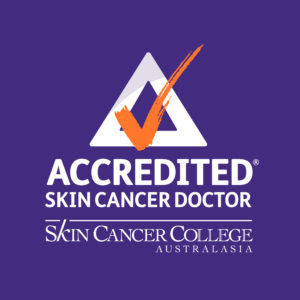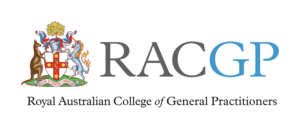What happens during a skin check?
A full-body skin check is a thorough examination of your skin from head to toe. Dr Boris Eskandari-Marandi will use a dermatoscope which is a handheld skin microscope, to closely examine moles, freckles and other lesions. If needed, photos may be taken using our Molemax digital imaging system for ongoing monitoring. The skin check is done in a private setting and takes place in a calm, respectful environment. If any suspicious spots are found, we’ll explain your options and next steps clearly.
Do I need to get fully undressed?
We understand that some patients may feel nervous about this, and that’s completely normal. You will not be fully undressed. The examination is done in 3 stages and clothing is removed one stage at a time, head and neck, upper body and legs. You are more than welcome to bring along two-piece swimwear, if you prefer to be wearing swimwear during your consultation. Light make up is usually not a problem but we do ask you to forgo foundation as it does limit the examination of the face. A gown or covering can be provided, and you’re welcome to ask for certain areas to be checked separately or to skip any area you’re not comfortable with. Your comfort and dignity are always respected. We do encourage you to check your private areas in the privacy of your own home and report any concerns at the time of the examination.
What should I wear to my appointment?
Wear something easy to remove, like loose-fitting clothes. You may also bring a two-piece swimsuit if that helps you feel more comfortable during the check.
How long does a skin check take?
Most full-body skin checks take around 15 minutes, some a bit longer depending on the number of moles or areas requiring closer inspection. We take the time to do it properly, there’s no rush.
What if the doctor finds something suspicious?
If something looks unusual, Dr Eskandari-Marandi will explain what it might be and what action (if any) is recommended. This may include monitoring the spot over time, taking a digital photo for future comparison, or booking a procedure to remove or biopsy it. Any follow-up treatment or procedures can often be done here in the clinic.
Does it hurt?
A skin check is non-invasive and completely painless. If a biopsy or removal is required, this would be done under local anaesthetic and we’ll explain the process thoroughly beforehand.
Do I need a referral?
No, you don’t need a referral to book an appointment at Hills Skin Cancer Clinic. Simply book online or call the clinic directly to schedule your visit.
Is this suitable for people with a history of skin cancer?
Yes, this is highly recommended and we regularly see patients with a personal or family history of skin cancer. Ongoing surveillance and digital mole mapping for suspicious lesions is available.
How often should I have a skin check?
This varies depending on your age, skin type, sun exposure history, any medications and previous skin cancers. As a general guide, adults over 50 or anyone with a high risk of skin cancer should have a check at least once a year. Dr Eskandari-Marandi can advise you on a suitable check-up schedule based on your skin and risk factors.
Can I request a specific area to be checked only?
Yes, if you’re concerned about a particular spot or area, we can focus on that. However, we do encourage full-body skin checks where appropriate, as skin cancers may develop in areas patients don’t notice themselves, and certainly not just in sun-exposed areas.
Who will perform my skin check?
All skin checks and procedures are performed by Dr Boris Eskandari-Marandi, a GP with over 15 years’ experience in skin cancer medicine. He holds a Master of Medicine in Primary Care Skin Cancer Medicine and is a Fellow of the Royal Australian College of General Practitioners. He is also an accredited member of The Skin Cancer College of Australasia
What if I have more questions?
You’re welcome to contact the clinic with any questions before your appointment. Our team is happy to help.



